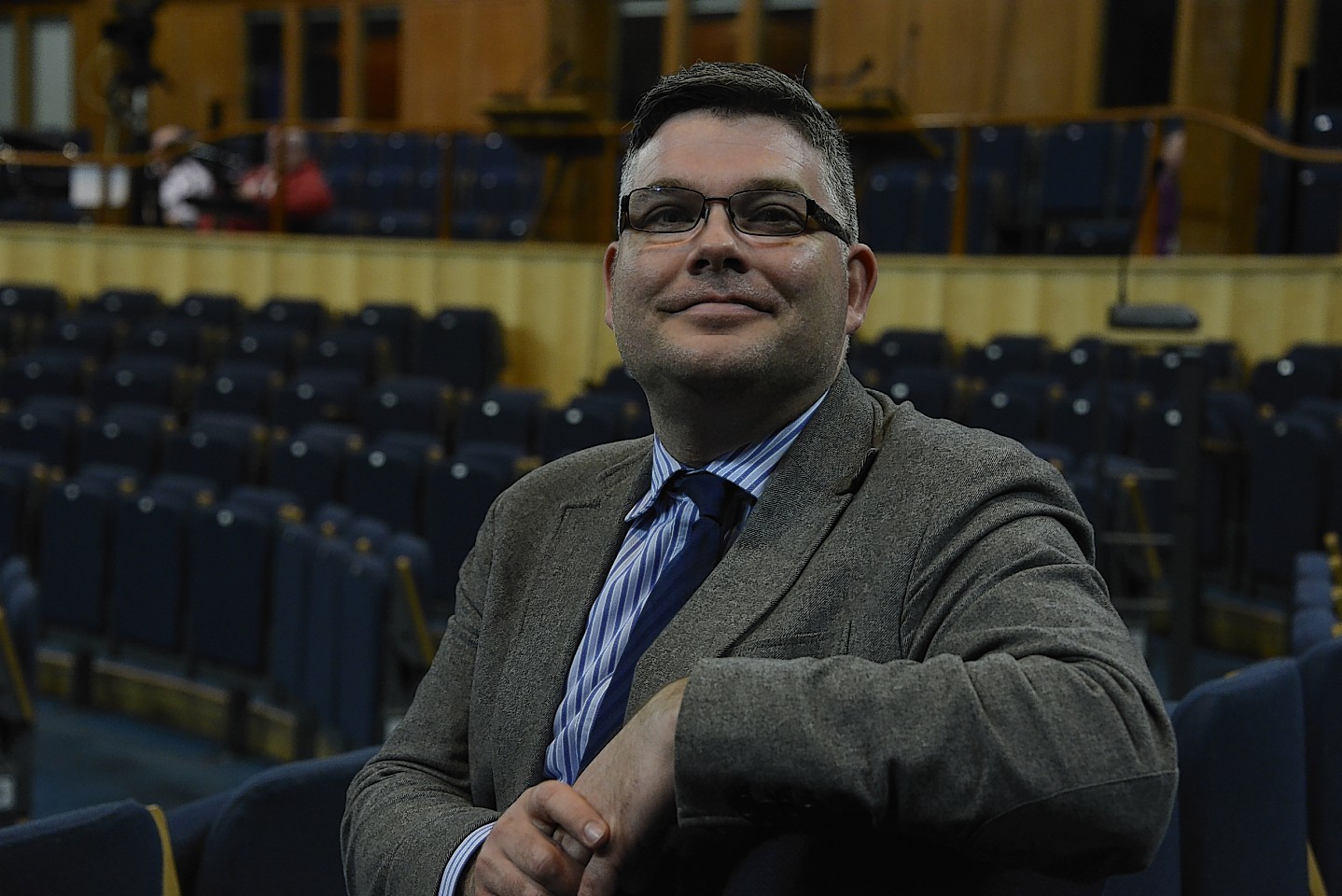A north-east minister who has challenged the Kirk’s historic view of homosexuality has said he was confident it would reverse its opposition to same-sex marriage.
The Rev Scott Rennie said he had no doubt that the General Assembly would soon be discussing the need to change church law to fall in step with civic society.
The 42-year-old minister, who leads Queen’s Cross Church in Aberdeen, made the prediction after commissioners voted 369 to 189 to further explore gay clergy appointment plans.
Mr Rennie said: “I hope that in time, and it is up to the Church how long it takes, it will just come to see marriage as just marriage.
“I have no doubt that in the next while the Church will have some reflection on marriage, and marriage as regards same-sex couples.”
Mr Rennie said he thought the term “marriage” would cover gay and straight couples within five years.
Same-sex marriage legislation was approved by MSPs in February and the first ceremonies will take place this autumn.
The General Assembly will have to change the Kirk’s own marriage law before ministers like Mr Rennie can conduct ceremonies.
Its current position is marriage is a relationship between a man and a woman.
Father-of-one Mr Rennie entered into a civil partnership with David Smith last year.
Asked how married life was, he said: “Great, wonderful, super – I would not miss it for the world.”
Mr Rennie, who grew up in Aberdeen and is a devoted Dons fan, said he was “delighted and very pleased” that presbyteries will be given the opportunity to further discuss the gay clergy issue.
Under the so-called mixed economy proposal, congregations would be allowed to appoint a minister in a same-sex relationship if they wished without compromising the Kirk’s traditional stance.
Mr Rennie said: “I thought the debate was much more moderate and understated than it has been in years gone by.
“I think that’s a sign of changing times and changing moods in the Church.
“It is a great model of how we live together in a diverse society.
“It is the price one has to pay for living with people whom you disagree and I firmly belive it is worth it.”
A total of 13 parish ministers out of 1,389 congregations have left the Kirk over the issue in the last five years.
Mr Rennie reflected on increasingly loud voices within the secular movement who claim the Kirk no longer reflects society.
The Scottish Secular Society claims its position on same-sex marriage and gay clergy was an illustration of how out of touch it was.
Mr Rennie said: “I feel there are elements within secular Scotland, and they are only elements, who are almost religious fundamentalists in that they mis-characterise other people.
“I don’t think militant secularism at all reflects the mainstream or reality of Scotland today.
Mr Rennie, a Liberal Democrat, said he had concerns about the future relationship between the Kirk and state in the event of independence.
He said the denomination provided space for discussion for different types of faith groups in the public sphere.
Mr Rennie said: “We live in a culturally Christian society and I know some people do not like that but that is the reality.
“My worry is I can see that coming under attack in the case of independence and I would like to hear more about how that would be protected.
“I would like something put into a written constitution if it comes to that so the public and political realm acknowledge the heritage and place of faith.”
